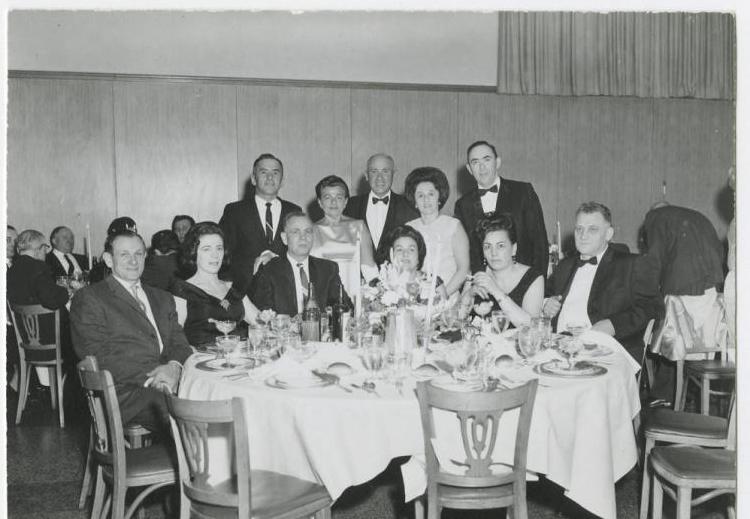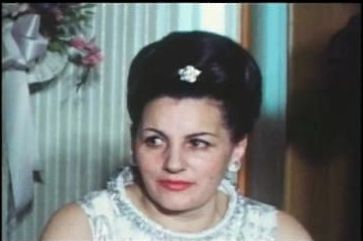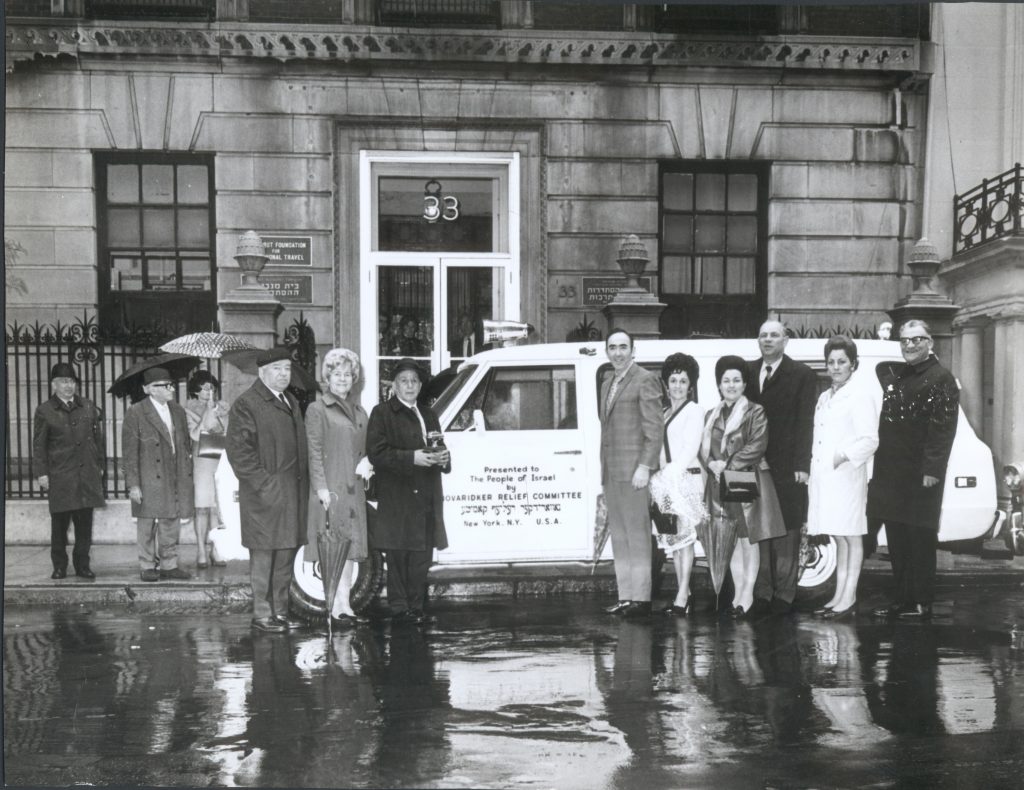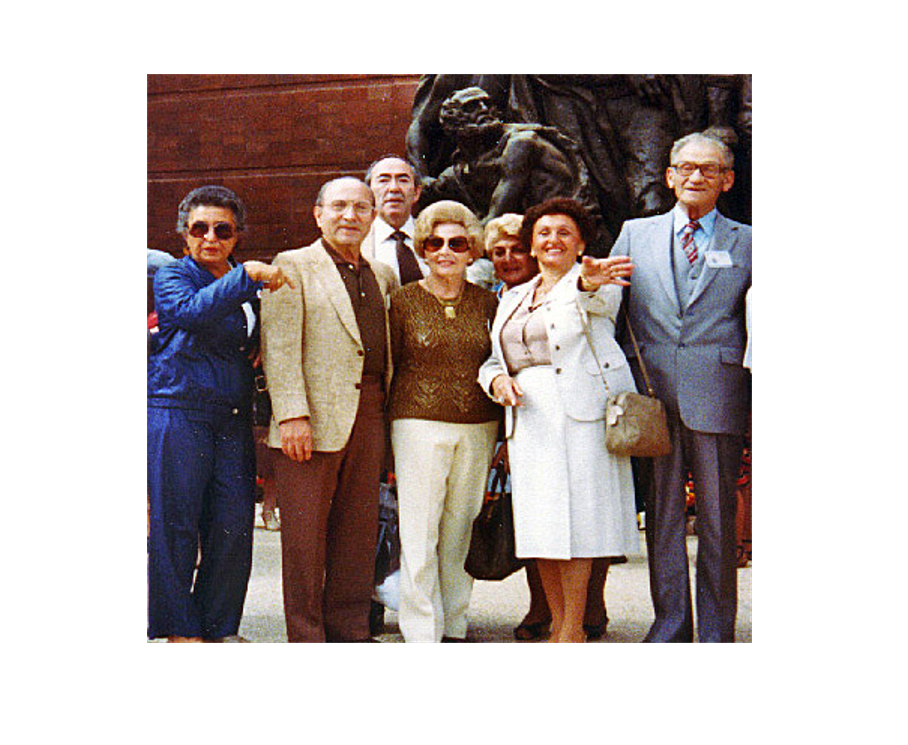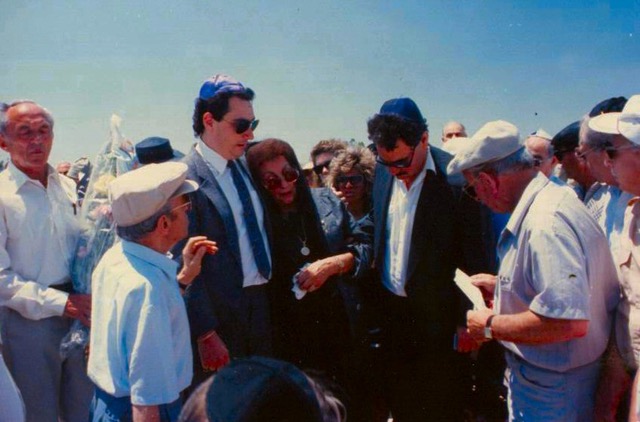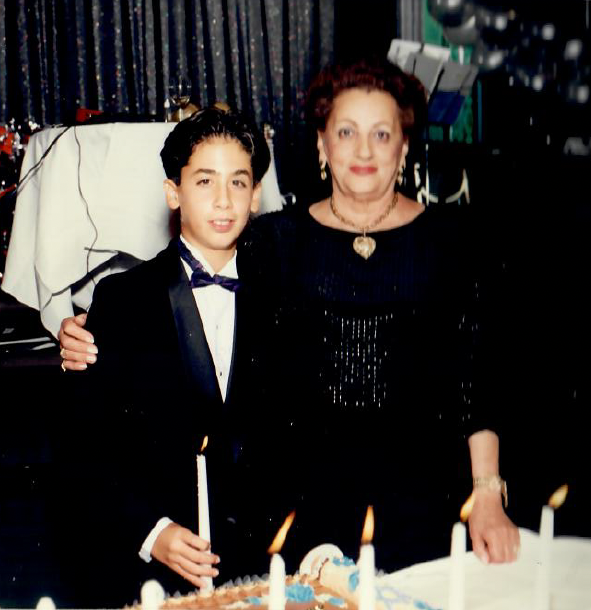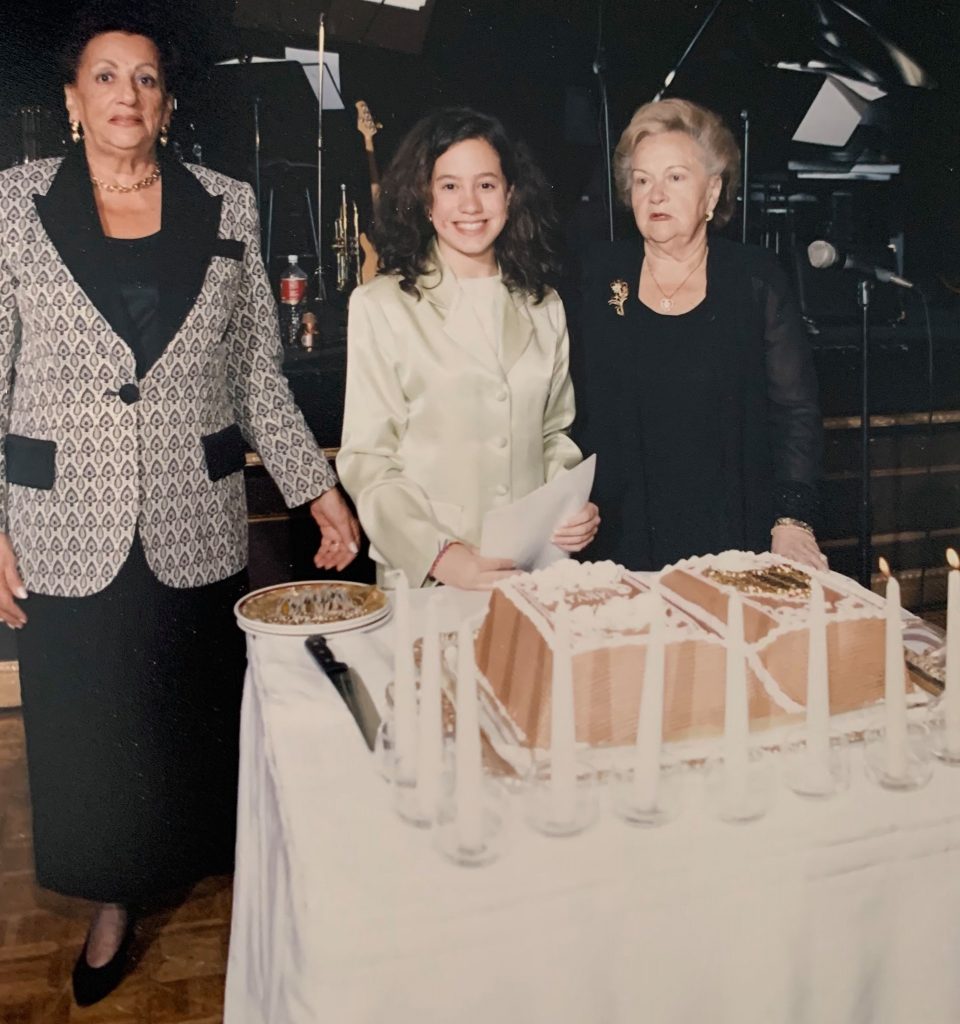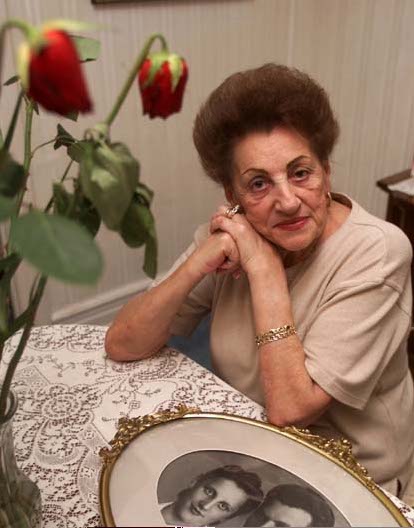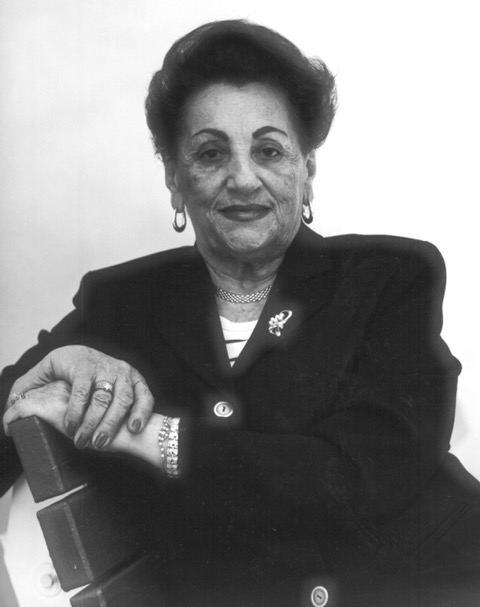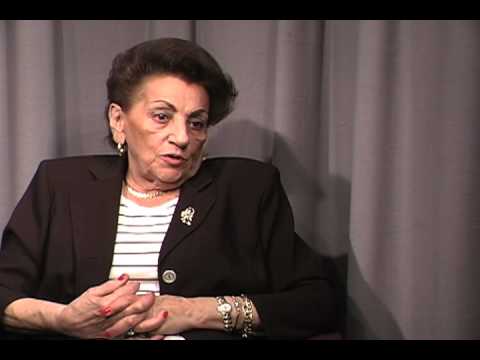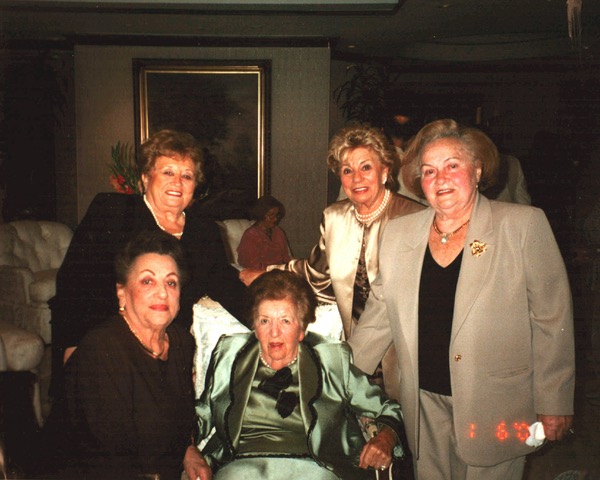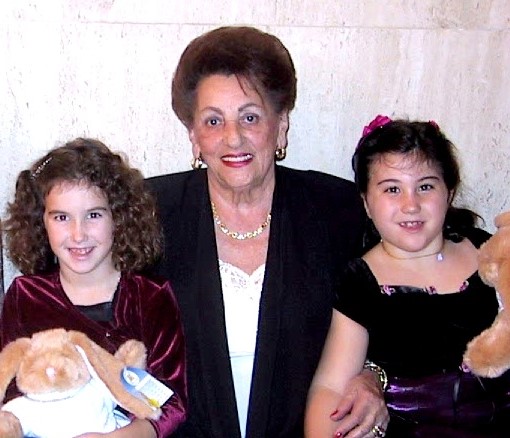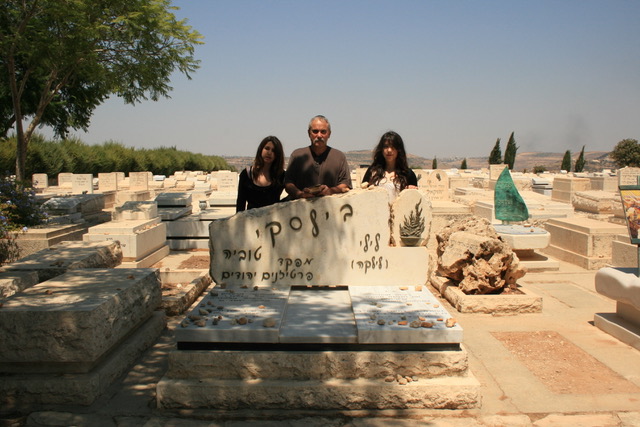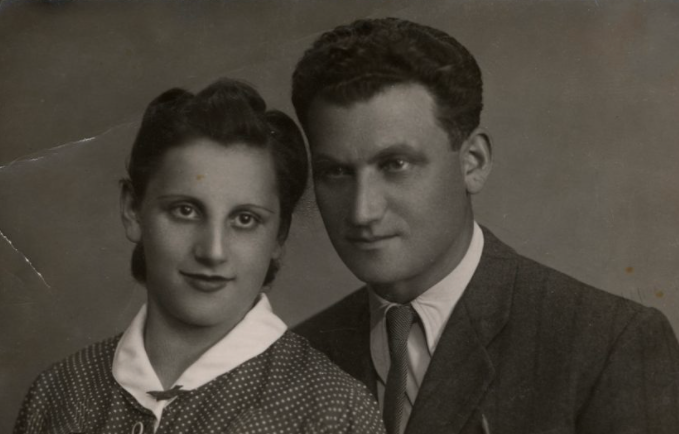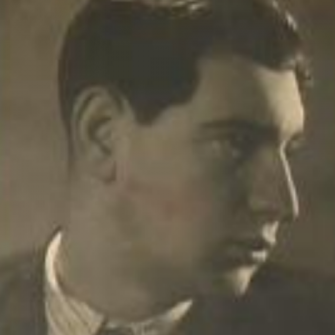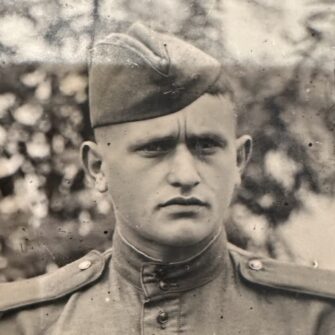Lilka Ticktin was born in Bialystock, Poland, on January 13, 1926. Before she was a year old, her family settled in Novogrudok. Her mother, Zina, was from a well-to-do, cultured family. Her father, Alter, had a thriving business collecting rags and processing them in multiple warehouses to produce paper. The Ticktin family was well-known in the shtetl, and often paid for weddings, a bris, or a Shabbos meal for those who couldn’t afford it.
Lilka went to a local Hebrew school, then followed in the footsteps of her older brother, Meir, and attended high school in Bialystock. At the age of 13, her mother got sick and passed away. Relatives came to stay with the children, until Lilka was sent back to Bialystock to finish her schooling. Her father eventually remarried. The new stepmother was a divorced, single mother, who worked as a seamstress to make ends meet.
When the Russians invaded the area, and the family fled to Lida, moving into a small apartment. Alter also brought his wife’s family to Lida, including her two sisters, and her mother.
Meanwhile, Lilka’s friend lived in the same building as Tuvia Bielski, who was working in Lida as a bookkeeper. The two young girls were captivated by him and often spied on Tuvia through the window. Once, he caught them, finding their infatuation amusing, and offered to take them to the movies.
In 1941, the Germans bombed Lida, and the family escaped to the countryside, staying with peasants. When things calmed down, they went home. Tuvia also left Lida, returning to his family home in Stenkevich. When the Germans entered Lida, the Jewish population was divided into three ghettos: Postawska, Koszarowa, and Piaski. Lilka remembers that she did not feel particularly afraid, and even regarded some of the Germans as friends.
All that changed later when the SS entered the picture. The evening of May 7, 1942, all three ghettos were fenced in. The next day, the Germans went house to house, rounding up all the Jews. Lilka was taken out with her family, wearing only a nightgown and shoeless. All the Jews were lined up and told to go to either the right or the left. Because her stepbrother was of use to the Germans, he had special privileges and he, his mother, Alter, and Lilka were told to go left. His aunt and grandmother joined those going right. When the selection was finished, those who went to the right were marched out of town, lined up by a pit, and shot by the Germans. Over 5,500 Jews were massacred. Those who remained in the ghetto were herded into one small area and told to be ready for work at 6 AM the next morning.
Tuvia, meanwhile, after seeing his family killed by the Nazis, had taken refuge in the woods surrounding Stenkevich, together with his brothers, and a handful of family members. He sent letters into the ghetto, urging the Jews to leave immediately, before they were killed. He wrote, “I don’t promise anything, but at least you’ll be free.” Alter insisted that he was staying where he was, adamant that he would share his fate with his fellow Jews.
One night, Lilka was awakened by her father shaking her and saying, “Get dressed, we are leaving tonight.” She was stunned by her father’s change of heart, but quickly got ready. Alter told her, “I dreamed that you survive. I’m not sure about me, but in my dream, you live through this.” They crawled under a fence, and remained crawling for a full kilometer, until they were met by Tuvia. He sent them to the family camp with his brother, Asael. That group now numbered twenty-one.
There were grumblings among the seventeen already in the group about adding more mouths to feed and take care of, but Tuvia was insistent that he would save as many Jews as he could. It became his primary mission: “I would rather save one old Jewish woman than kill ten Nazis”, Lilka remembers him saying.
The group continued to grow; first, friends and relatives, and then Jews they had never met, who escaped from the ghettos or from trains bound for the extermination camps, motivated in part by knowing they had a place to go – The Bielski Camp. Hunger was widespread in the area and the Jewish refugees, the Belarusian peasants, and the Nazi army, all competed for what little food there was.
The Bielski partisans regularly sent out food missions, to help procure food for their growing numbers. Alter insisted on joining one of these missions. At age 49, he was considered old and entitled to stay behind at the camp. Even though a tearful Lilka begged him not to go, he insisted on joining the group. That was the last time she saw her father. The group was out late, and the sun was rising. Rather than risk discovery in the dawning light, they opted to stay in the house of a local farmer until night fell again. The Nazis came and slaughtered them all, save for one, who hid beneath a stove.
Almost a year later, Lilka’s stepmother became extremely ill with the flu. Her son decided to bring her to the home of local peasants, where her sister had been in hiding. The Nazis discovered them, and they were slaughtered.
Now, two years after she left Lida for the camp, Lilka found herself all alone. But the relationship between Lilka and Tuvia had been growing. At first, he would just make sure she always had enough to eat, and always showed her kindness and compassion for her circumstances. Soon, the awe and admiration the young Lilka had for the commander turned to mutual love. Tuvia continued to look out for Lilka and they eventually married in the woods. The marriage that lasted for 45 years, until Tuvia’s death in 1987. Lilka never looked for any privilege as the Commander’s wife, and she often did her part, standing guard over the camp overnight, gun in hand. She made formal reports to the Commander in the morning about the night’s activities.
As the Commander’s wife, she also played the part of hostess, entertaining the leaders of the Russian partisans. It was vital for the group to be of use to the Russian Otriads (or brigades), so they provided leather boots and gun repair in the workshops of the Shtetl Bielski, as it became known.
Despite the misgivings of those in the group, Tuvia felt it was vitally important that they accept all Jews into the community. “As a small group, we have no chance,” he said, “we will survive in the woods, at least some of us. If we stay in the ghetto, we will all perish.”
The group, eventually numbering over 1,200 people, survived the war. In July of 1944, as the Red Army advanced and the Nazis retreated in panic. The day of liberation came unexpectedly. Much of the group returned to Novogrudok, but found their homes were now occupied by the local peasants.
Lilka and Tuvia soon realized they had to leave Novogrudok; Tuvia was too well known, and they found out the NKVD, the predecessor to the KBG, was looking for him. Tuvia and his brother Zus, along with their wives, Lilka and Sonia, and younger brother Aron, boarded a train heading west. It was a treacherous journey, as they were stopped numerous times by the NKVD.
They continued west, through Czechoslovakia, Hungary, and Romania, where they settled for some time. While living in Romania, the group was contacted by a Zionist organization, promising legal passage to Palestine.
They boarded the ship to Palestine and arrived in the promised land just in time for Israel’s war for independence. Tuvia went from fighting in one war to fighting in another. Lilka gave birth to a girl in Palestine in 1946. Tuvia and Lilka and their infant girl, Ruth, were given housing in the settlement called Holon, south of Tel Aviv.
Eventually, war broke out during the fight for Israel’s independence. Tuvia was involved in the fighting but assured a worried Lilka that he would return soon. It was Yom Kippur, and he still hadn’t returned. Lilka knew something was wrong. She walked to the military headquarters to see if she could get any news. They explained that the truck Tuvia was traveling in had been blown up in the desert and all of the occupants killed.
With a heavy heart, Lilka returned to Holon. Night fell, and she prepared to sit Shiva, tearing her clothing in the Jewish tradition. Suddenly, her young daughter stood up in her crib, calling “Aba, Aba” (father). Lilka turned to the door and could not believe her eyes. There, stood Tuvia, dirty and exhausted. His truck had exploded, but he had survived and walked through the desert for three days to return to his family.
In 1952, Lilka had another baby, a boy, who they named Meir Aztzmon, after Lilka’s brother. Ruth affectionately nicknamed him Mickey.
Tuvia soon began to develop health problems and was diagnosed with a bleeding ulcer. At the urging of two brothers, who had immigrated to the United States prior to the war, he made the journey to New York in 1955 for an operation. Lilka and her two children followed in 1956, where they eventually added a third child, son Robert. Lilka lived a fairly ordinary life in Brooklyn, raising her children and adjusting to life in a new country. She enjoyed watching her children grow up, get married, and have children of their own. Tuvia’s family and other relatives followed, also settling in Brooklyn. Lilka loved cooking for the holidays and spent winters in her later years of her life in Hallendale, Florida. Tuvia and Lilka eventually had nine grandchildren and one great-grandchild. Presently, they have two more great-grandchildren on the way.
Tuvia died in June 1987 and Lilka in September 2001. They are buried side by side on a hillside in Har HaMenuchot Cemetery, overlooking Jerusalem.

